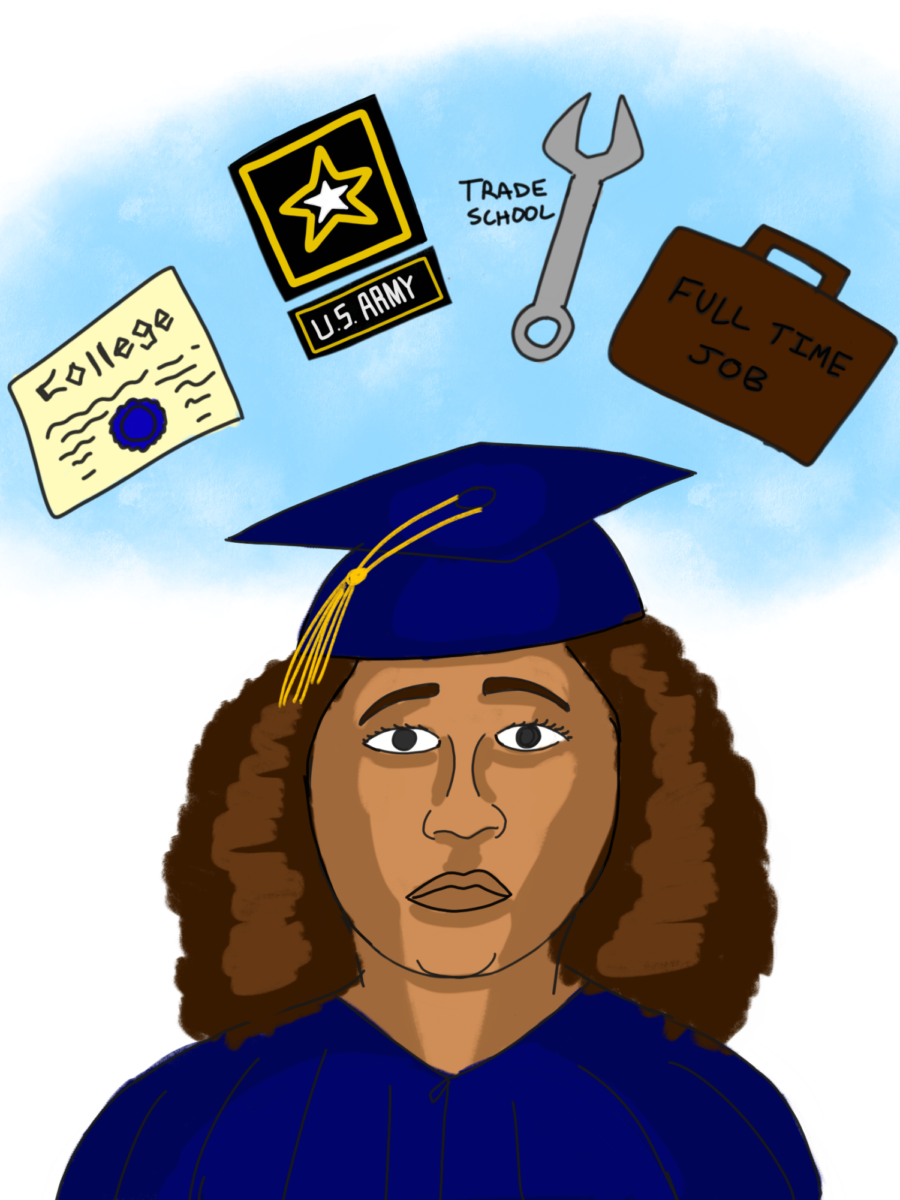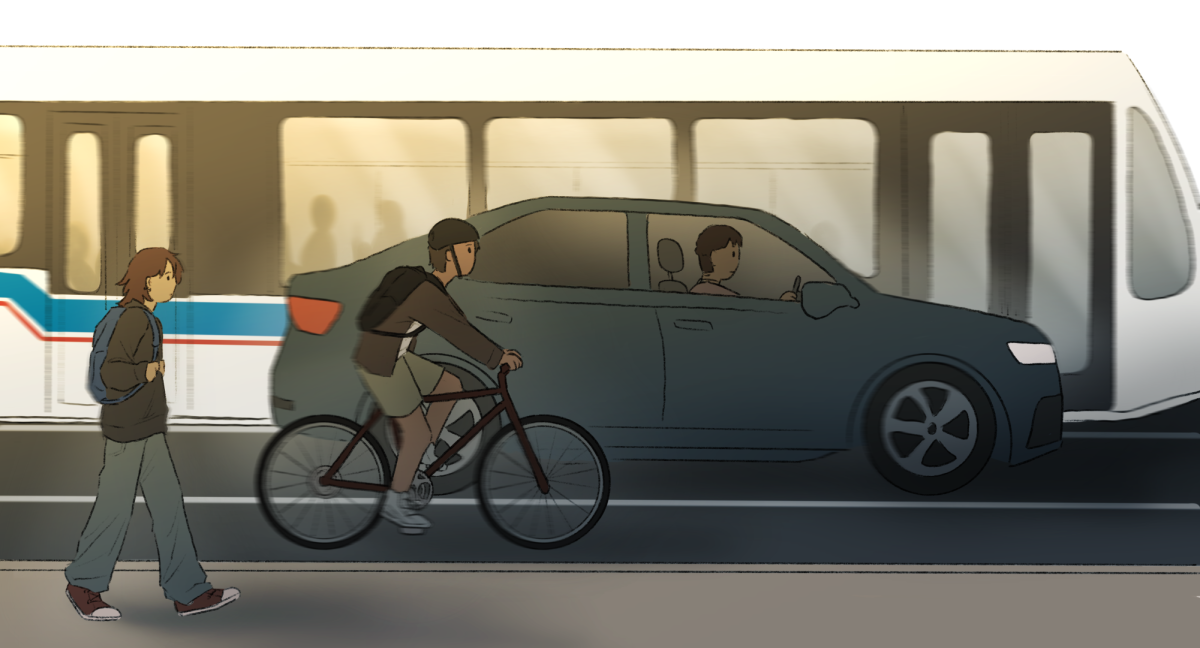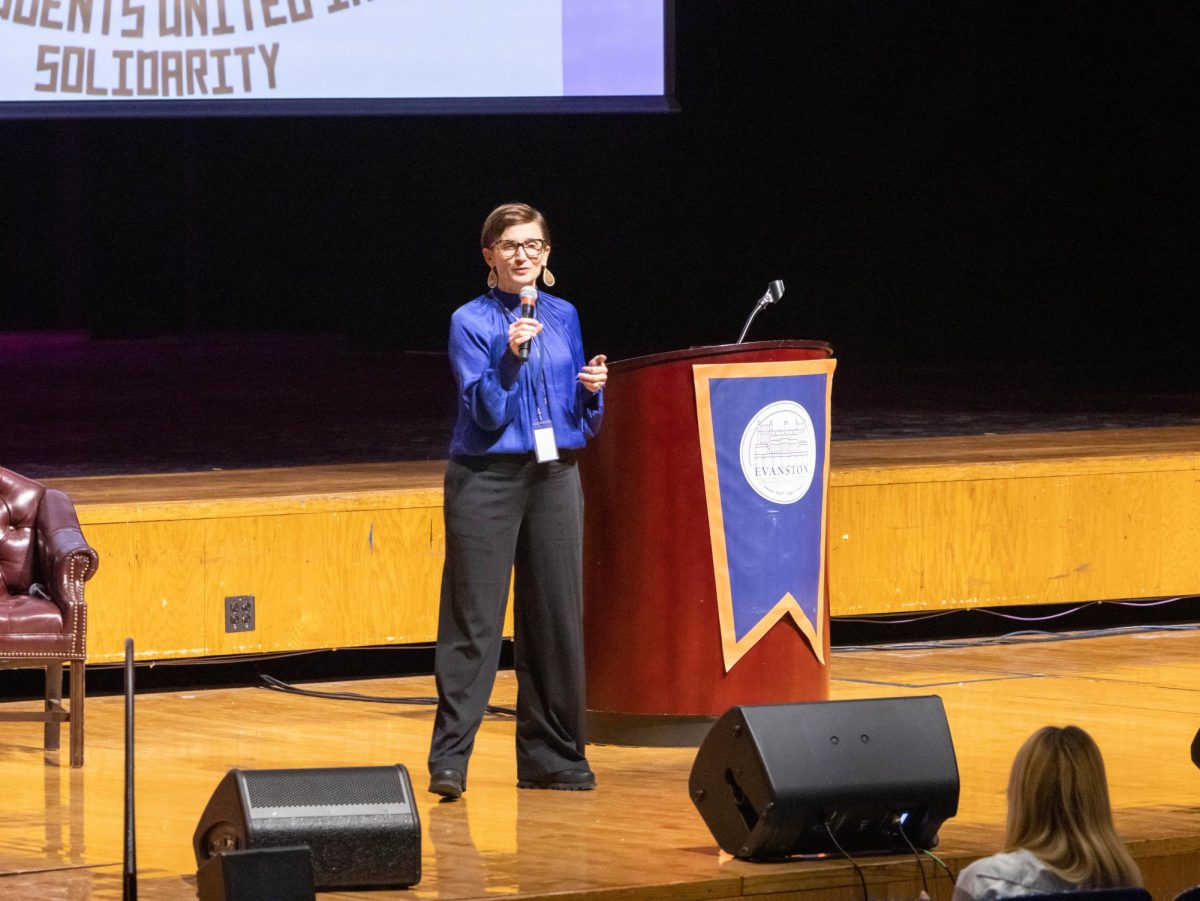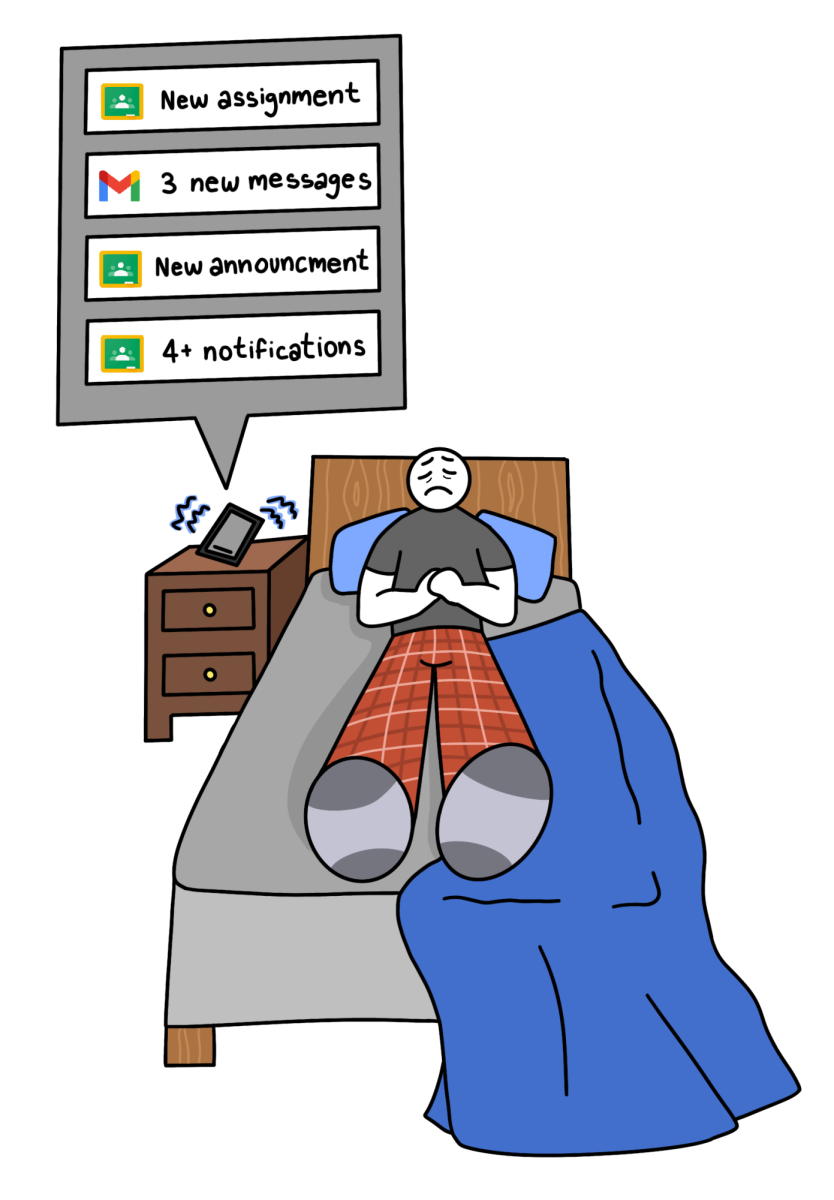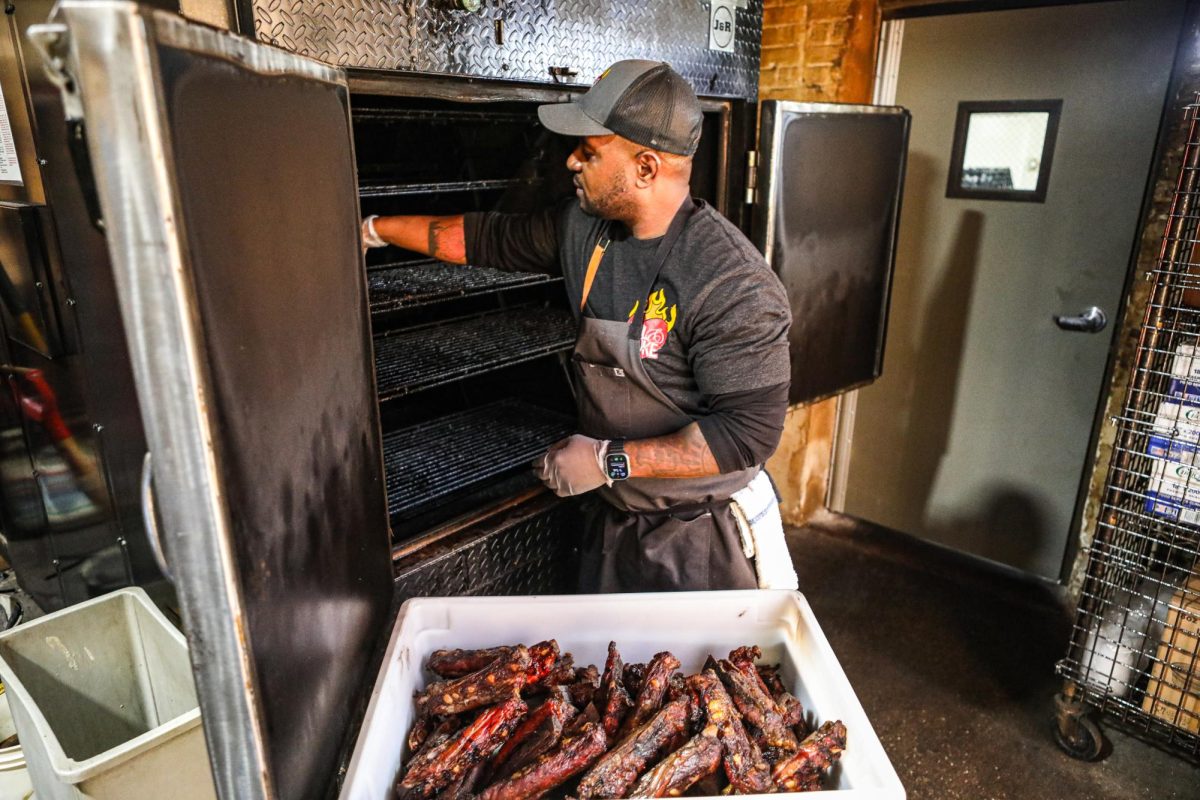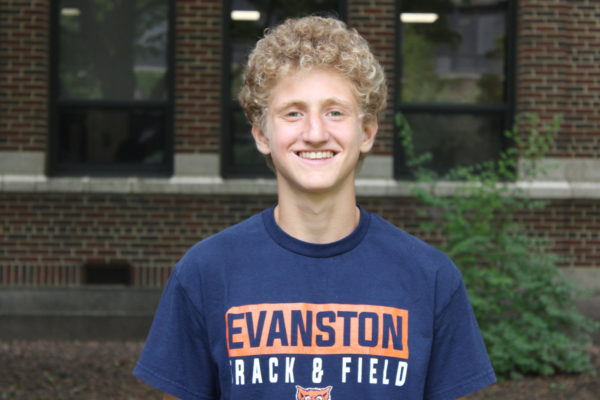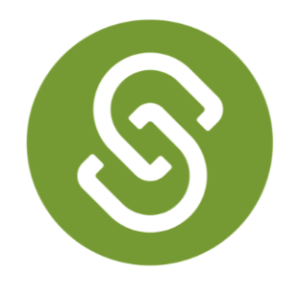
When an ETHS student visits the SchooLinks website, they see a white and green logo. Two u-shapes are linked together, forming an “S.” These links seem to represent a student’s connection with the world outside of high school, a world that the student needs preparation for. On the home page, the student sees tabs and tools that will help them explore and identify college and career pathways throughout their high school career. This website is one of many tools and opportunities that ETHS provides in the interest of preparing its students for their life after high school.
When Beth Arey, the ETHS College & Career Coordinator, arrived at ETHS 14 years ago, the high school was in its first year of utilizing Naviance, the first college and career readiness software to be used at ETHS.
“We started out with Naviance, which, at the time, was a pretty innovative college and career planning tool, but really focused on college specifically,” Arey says.
The students who benefited from Naviance the most were the ones who were looking to go to college, an option that is not feasible for every student. Because of this, many students felt undervalued and underprepared when they entered a world without the college experience that so many students were prepared for. Timothy Mooney, a 2021 ETHS graduate who dropped out after one year at the University of British Columbia, feels that ETHS let students down in that area.
“I feel like [in terms of] being immediately prepared to be an adult and out in the actual working world without the college buffer, [ETHS] didn’t prepare you at all,” Mooney voices.
“I didn’t really know what life would have looked like had I not wanted to go to college,” adds Hespos Goodman, a 2021 ETHS grad and rising junior at UC Santa Barbara.
That is part of the reason why ETHS made the switch to the SchooLinks website in the fall of 2020, with the class of 2021 marking the final age group to use Naviance for all four years. Arey believes that SchooLinks is a much more inclusive and expansive software, with other benefits as well.
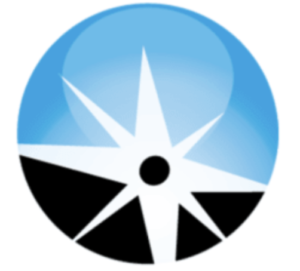
“We did a review of several different online tools that could really help us help students with that process, and so we came upon SchooLinks. We chose SchooLinks because it’s much more interactive than Naviance was and the other programs that we looked at. And we do find that students are using it at a much greater capacity and frequency than ever before with Naviance.”
Not only do students seem to be embracing the new software, but so do graduates.
“I think [SchooLinks] was really good. I know some kids who are using it now as college freshmen who are wanting to transfer to other schools, and they use some of the tools SchooLinks gives them to reapply, which is cool,” says 2022 graduate Oliver Pratt.
SchooLinks’ resources for students who aren’t interested in college are vast. Arey explains that one tab on SchooLinks gives an opportunity for students to see in-person speakers from different career fields, while another lists local internship, apprenticeship and employment options.
Another big switch that the high school made in 2020 was the move away from finals. The subject had been hotly debated for many years, but the switch to virtual learning for 2020-21 and the increased focus on high school students’ mental health was the push that administrators needed to eliminate finals for good. Carver Buchanan, having graduated from ETHS in 2020, had finals for all four years of high school.
“Finals never really felt like the best measure of academics at ETHS,” they state. “You could fail a final and have done really well in the class overall and have a really good grasp on the subject.”
Similarly, Pratt benefited from classes without finals, although he admits that he had to readjust when he got to college.
“I don’t take tests well, so I was really happy when they got rid of them strictly from a grades perspective,” he says. “I just had to relearn [studying skills] really fast. Like, I had to remember what it was like to spend a week practicing and studying and reviewing.”
Arey says that she was not consulted in the 2020 decision and that students would benefit from finals, not just for college preparation, but for professional pursuits as well.
“The students who graduated and then are having to take finals in college are definitely having to learn a new skill [in] a bit of a high-pressure situation… and we can talk about college but we can talk about other things too. For instance, if you were to do a career program, you need to take a licensing assessment for many careers. Whether that be electrical work, EMT paramedic, hair styling, things in the healthcare field, medical billing, coding, they all require some sort of an examination,” Arey emphasizes.
Despite the criticism of ETHS’ new finals policy, many students feel that Advanced Placement classes provide ample opportunity for students to practice studying for cumulative exams. ETHS offers 34 AP classes across many departments, providing students with the chance to take college-level courses for college credit, provided that they do well on the AP exams in May.
“[AP courses] are definitely good at preparing kids for college,” says 2021 ETHS grad and Georgetown University student Ben Ward. “Especially just that [ETHS] has so many of them; I know some people who come from schools that only offered five APs total and they’ve expressed that they feel a little bit less prepared for college.”
Ward, who is a math major, also feels prepared by non-AP classes that helped him excel in his college academics. A unique class that is offered at ETHS is Advanced Topics, which is co-taught by a Ph.D. Northwestern professor and an ETHS math teacher for students willing to pursue more ambitious concepts than the advanced calculus courses.
“Being able to work with a Northwestern professor at ETHS was very cool,” Ward states. “And I was introduced on the surface level to concepts that I now have full classes on, so I already went in knowing the basics. That was pretty helpful.”
ETHS also offers several classes focused on post-high school planning in the Career & Technical Education (CTE) Department. Students must take at least one to two CTE classes to graduate. Accounting, Culinary and Auto Technology are just some of the CTE courses offered during the school year and over the summer that provide students with the opportunity to learn about potential career paths, finances and other adult skills.
“I would say that [CTE summer school course Contemporary Adult Life] was actually quite useful to me, at least the finance section; the rest of it, I don’t remember,” Buchanan states. “I didn’t really understand how credit worked before that. And I think that I now understand how credit works.”
For younger students, the mandatory Freshman Advisory Study Hall (FASH) and Sophomore Advisory Study Hall (SASH) courses have been established in recent years so that underclassmen can get an early start on their career plans through activities on SchooLinks. Arey emphasizes that the intention of these classes is not to force young people in a certain direction, but rather to allow for career exploration.
“I think the evolution of [FASH] and [SASH] and the partnership that we have with the coordinators of that to develop [post-high school planning] curriculum has really been awesome, and has been a great opportunity to get our work in front of students.”
Alongside a team of counselors, teachers and administrators, Arey continues to find ways to open up opportunities for ETHS students to excel after high school, no matter what direction they take.
“I love my work,” she concludes. “I love doing it for you guys.”
